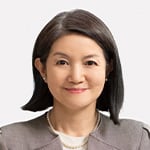Japan’s Ministry of Economy, Trade and Industry (METI) has announced the Cabinet’s approval of the removal of the Republic of Korea from the “White Countries” List on 2 August 2019. METI announced on 1 July 2019 that it had initiated the process of revising the so-called “White Countries” list in Appendix 3 of the Export Trade Control Order to remove the Republic of Korea and that it would be accepting public comments on the revisions until 24 July 2019.
The public comments received are available here. This announcement is available here. This amendment is scheduled to promulgated on August 7, 2019 and go into effective on August 28, 2019.
Market impact
Exports to “White Countries” are subject to simpler export licensing requirements, and rarely require an export license unless they involve the export or transfer of so-called “listed products/technologies.”
If the destination is a non-White Country, an export license is sometimes required even when the products/technologies at issue are not listed. Exporters to the Republic of Korea will need to independently determine whether an export license is required in a particular case by identifying the end user and end use and confirming that no risk exists of the exported materials being used in the development of conventional weapons or
weapons of mass destruction, etc.
This amendment may delay exports of the relevant products/technologies from Japan to the Republic of Korea and may disrupt supply chains.
The Japanese government has confirmed that the measures it has taken (i) are not an export ban and (ii) are unlikely to cause problems in the flow of exports or for global supply chains.
However, on 4 August 2019, the Korean Fair Trade Commission announced the imposition of a surcharge of 9.2 billion won (around JPY 814 million, USD 7.6 million) on four Japanese companies in connection with alleged bid rigging involving Korean auto manufacturers.
The Korean government has announced that it would provide financial support for its semiconductor industry by diversifying the procurement system. Related parties are reportedly confirming their supply chains in order to reduce the risks to which they may be exposed.
